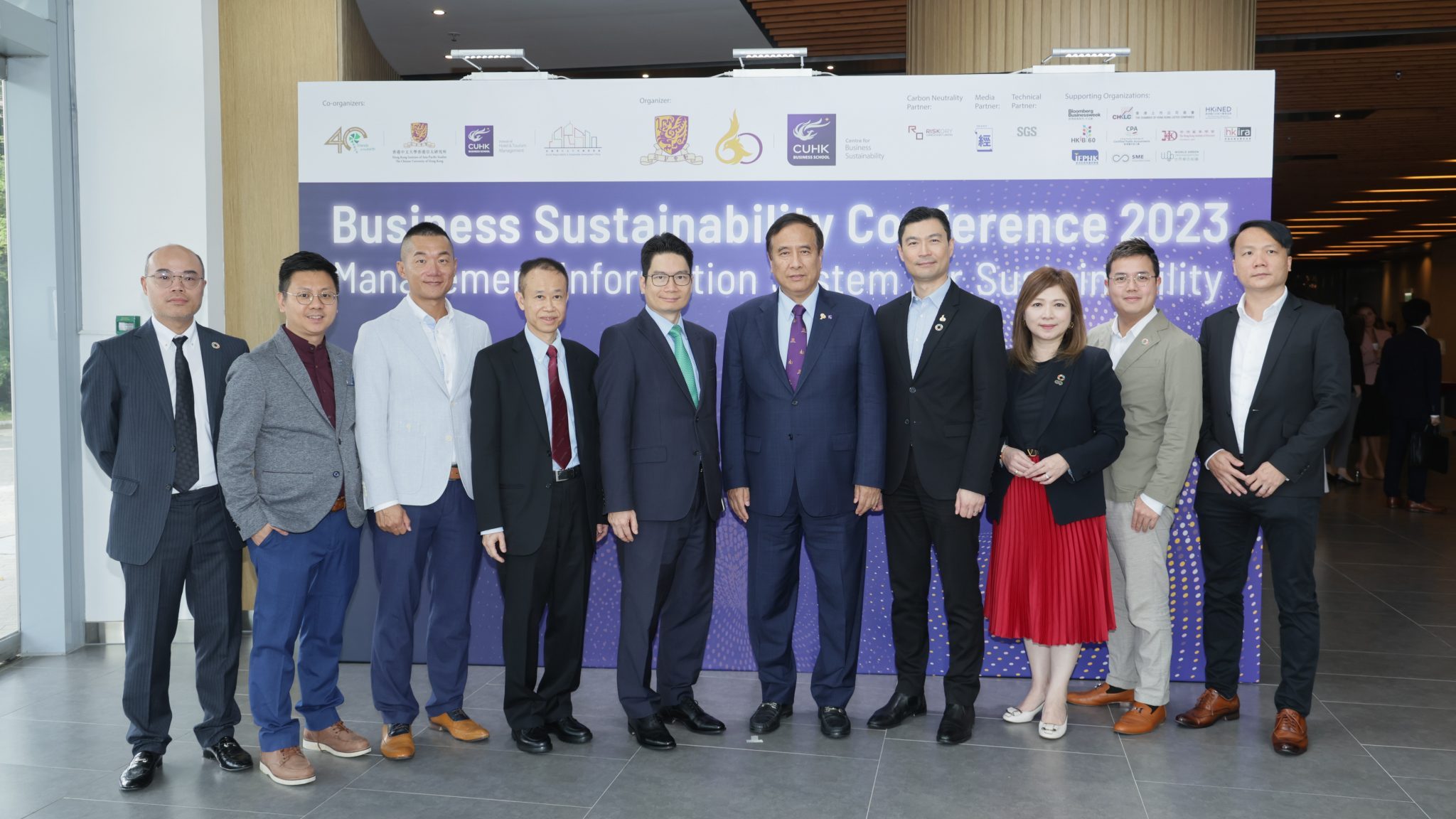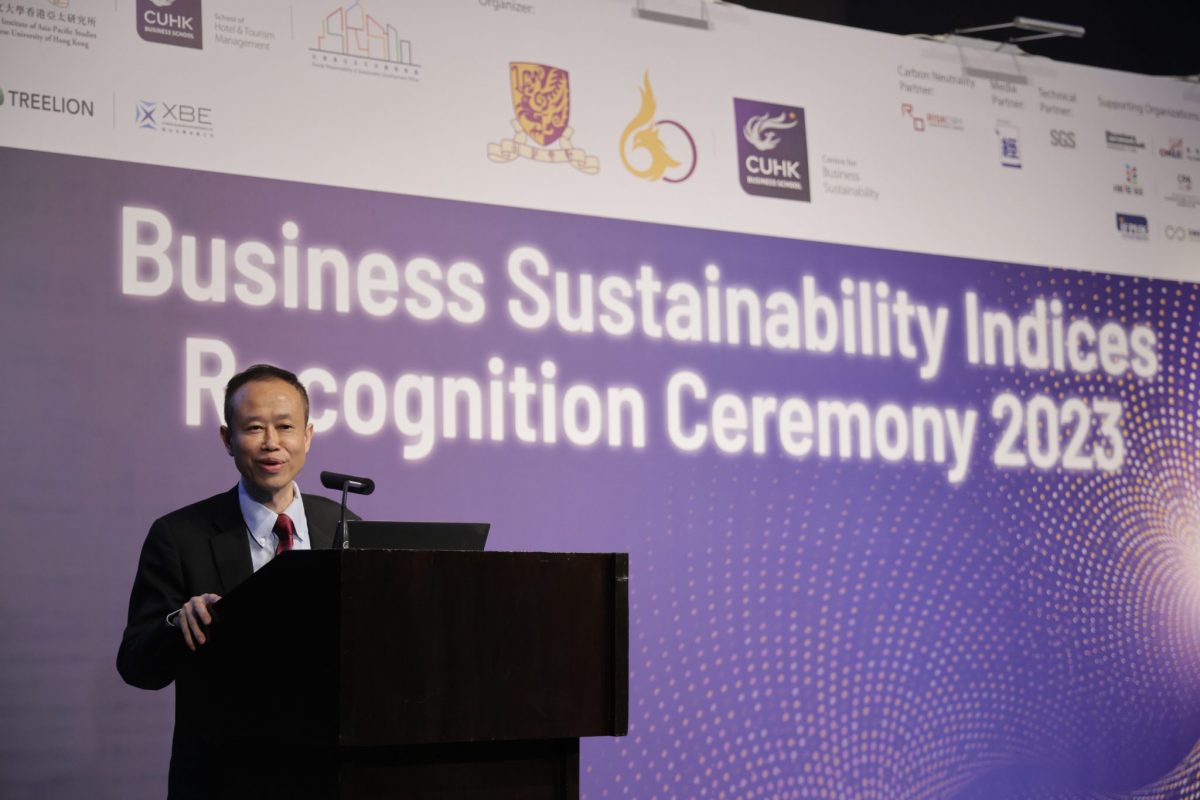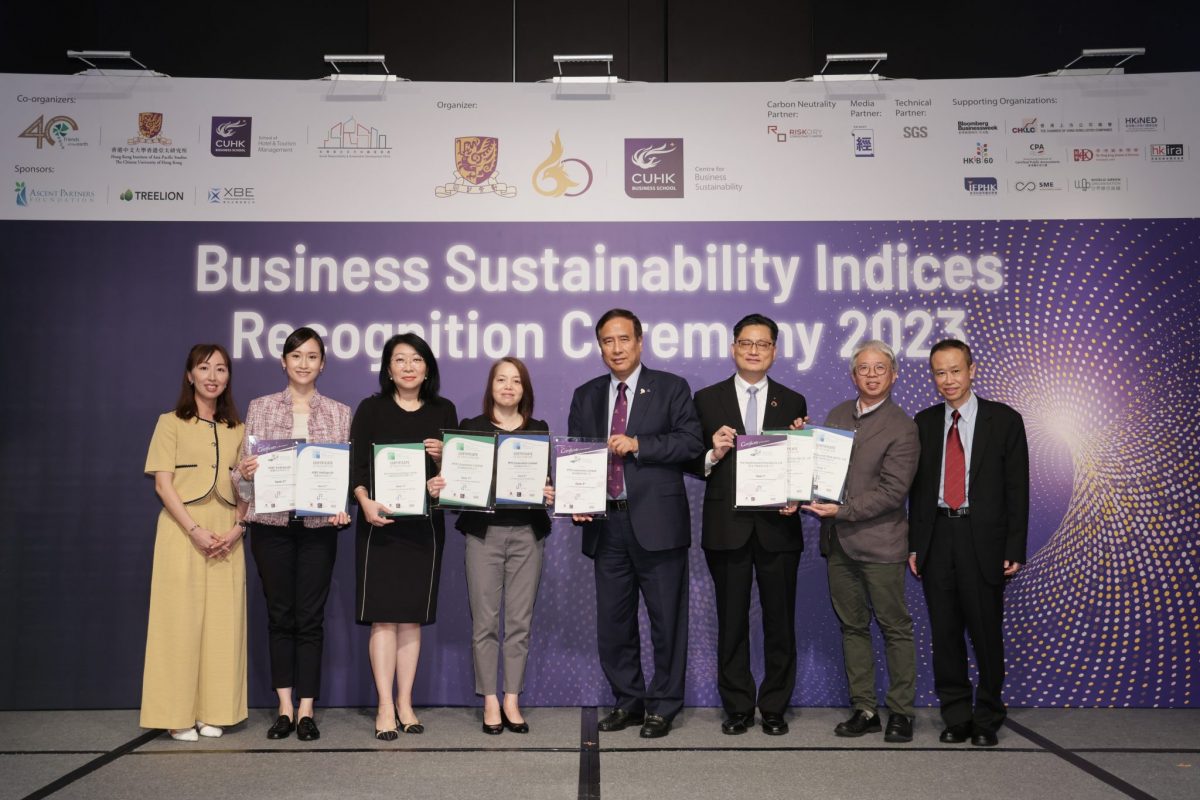CUHK Business School Sustainability Indices Reveal Promising Trends in Sustainability in Asia Pacific under the New Normal

The Chinese University of Hong Kong (CUHK) Business School’s Centre for Business Sustainability (CBS) has recently released the results of the Business Sustainability Indices (BSI) 2023.
Since its launch in 2015, the BSI has offered a framework that supports companies in driving their sustainability strategy and promotes business practices that contribute to positive social and environmental impact. This year, the BSI examines the sustainability performance of 371 listed companies during the financial year of 2020-2021 or calendar year 2021, as applicable.
 Prof. Carlos Lo, Director of CBS at CUHK Business School
Prof. Carlos Lo, Director of CBS at CUHK Business School
This year’s results, covering the period when businesses were adapting to the new normal since the outbreak of COVID-19, show signs of gradual recovery and a shift of focus in companies’ sustainability endeavours. This is evident in the increased involvement in environmental and community initiatives and steady improvement in ESG performance. Besides, sustainable investing and the growing institutionalisation of ESG practices have emerged as key driving forces that shape the landscape of corporate sustainability.
 Certificates were presented to representatives of the companies achieving exceptional performance in business sustainability.
Certificates were presented to representatives of the companies achieving exceptional performance in business sustainability.
The 1st Global (Asia Pacific) BSI
The inaugural Global (Asia Pacific) BSI assesses 69 Hang Seng Index constituents, 50 Australia S&P/ ASX50 Index constituents and 30 Straits Time Index (STI) constituents, providing a benchmark for regional and industry reference.
Overall, Hong Kong companies topped the chart in the total score and ranked as the top 10 companies in the region. These companies exhibited a distinctively stronger performance (71.12 points) in addressing government in their sustainability practice compared to Singapore (39.21 points) and Australia (23.94 points), possibly as a result of the growing regulatory requirements on ESG disclosure from the Hong Kong Stock Exchange among other factors.
The 8th Hong Kong Business Sustainability Index (HKBSI)
The HKBSI, a composite score representing the annual sustainability performance of companies listed on the Hang Seng Index (HSI), assesses a total of 69 listed companies this year.
The total average score for HKBSI reached 62.56 points, representing a 4.88% year-on-year increase, entering the “Performer” grade range (60-69 points) for the first time. The practice score also rose to a record high at 73.25 points, placing it within the “Achiever” range (70-79 points). This indicates that companies have been actively translating their sustainability vision, mission and values into action. The results also reveal a visible narrowing of the gap between top-performing companies and others.
The 4th Greater Bay Area Business Sustainability Index (GBABSI)
The GBABSI evaluates the sustainability performance of listed companies operating within the Greater Bay Area economic zone.
Comparing to the 3rd GBABSI results (54.21 points), this year’s assessment reflects an overall average score improvement of 10.02%, reaching 59.64 points. Notably, “Practice” category recorded a significant increase of 14.07%, and the “Impact” category saw a notable increase of 15.18%.
The results also indicate a diminishing difference between the average scores of HKBSI and GBABSI, from 5 points last year to 2.92 points this year. Additionally, the score of the top 20 companies in GBABSI (85.19 points) surpassed that of the top 20 companies in HKBSI (83.18 points).
The 3rd Greater China Business Sustainability Index (GCBSI)
GCBSI accesses listed companies from HSI, FTSE TWSE Taiwan 50 Index, Shenzhen 100 Index and Shanghai Stock Exchange SSE 50 A Share Index.
This year, the overall average score for GCBSI is 56.89, representing a 9.70% year-on-year increase. Listed companies from Taiwan achieved the highest average score of 65.96, followed by companies from Hong Kong (62.56 points), Shanghai (51.75 points), and Shenzhen (45.61 points).
Taiwan companies have shown signs of a slight decline, while Hong Kong companies have consistently improved their overall performance. For both cities to move forward, innovation, specialised talent, as well as regulatory incentives will be key. In Shanghai and Shenzhen, listed companies have rapidly caught up. In Shanghai, in particular, companies have progressed from the “Explorer” in the second GCBSI to the “Practicer” category this year.
The 3rd Hotel BSI
Conducted by the Centre for Hospitality and Real Estate Research (CHRER), this year’s Hotel BSI assesses 38 constituents – 29 listed hotel companies in the Greater China region and 9 international hotel chains.
Overall, the average score increased by 2.51%. Half of the indexed hotel companies reached the level of “Performer” or higher. The overall improvement was primarily driven by hotel companies’ performance in the government sector, which recorded increases in both “Practice” (48.37, up by 16.33%) and “Impact” (25.24, up by 17.24%).
The progress reflects the sector’s enthusiastic response to the government’s call for participation in COVID-19 related disaster relief measures. Another area that saw substantial growth was “Impact” (44.18, up by 55.32%) in the consumer sector. It shows that despite the difficult operational environment, consumers acknowledged that hotel companies did not compromise on service quality.
For more information about the results of BSI 2023, please visit the CBS website: https://cbs.bschool.cuhk.edu.hk/research/
About the Centre for Business Sustainability (CBS)
CBS is a collaboration between the Department of Management and the Department of Government and Public Administration at the Chinese University of Hong Kong. Founded in June 2018, the CBS mission is to promote business sustainability as a viable and profitable business model through conducting innovative research on Corporate Social Responsibility (CSR) and sustainability management practices in the region. It also aims to transfer the acquired knowledge of CSR applications to both academic and business communities.

